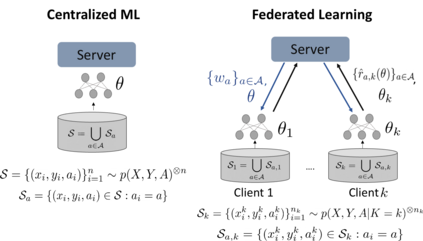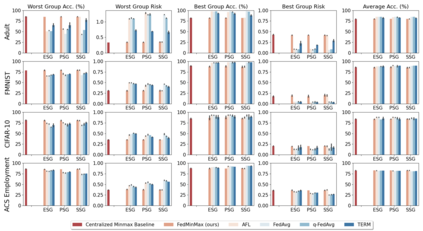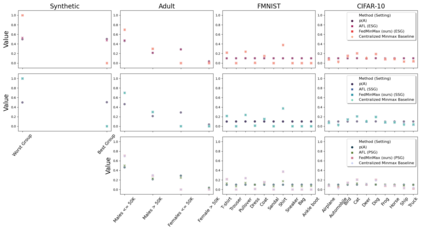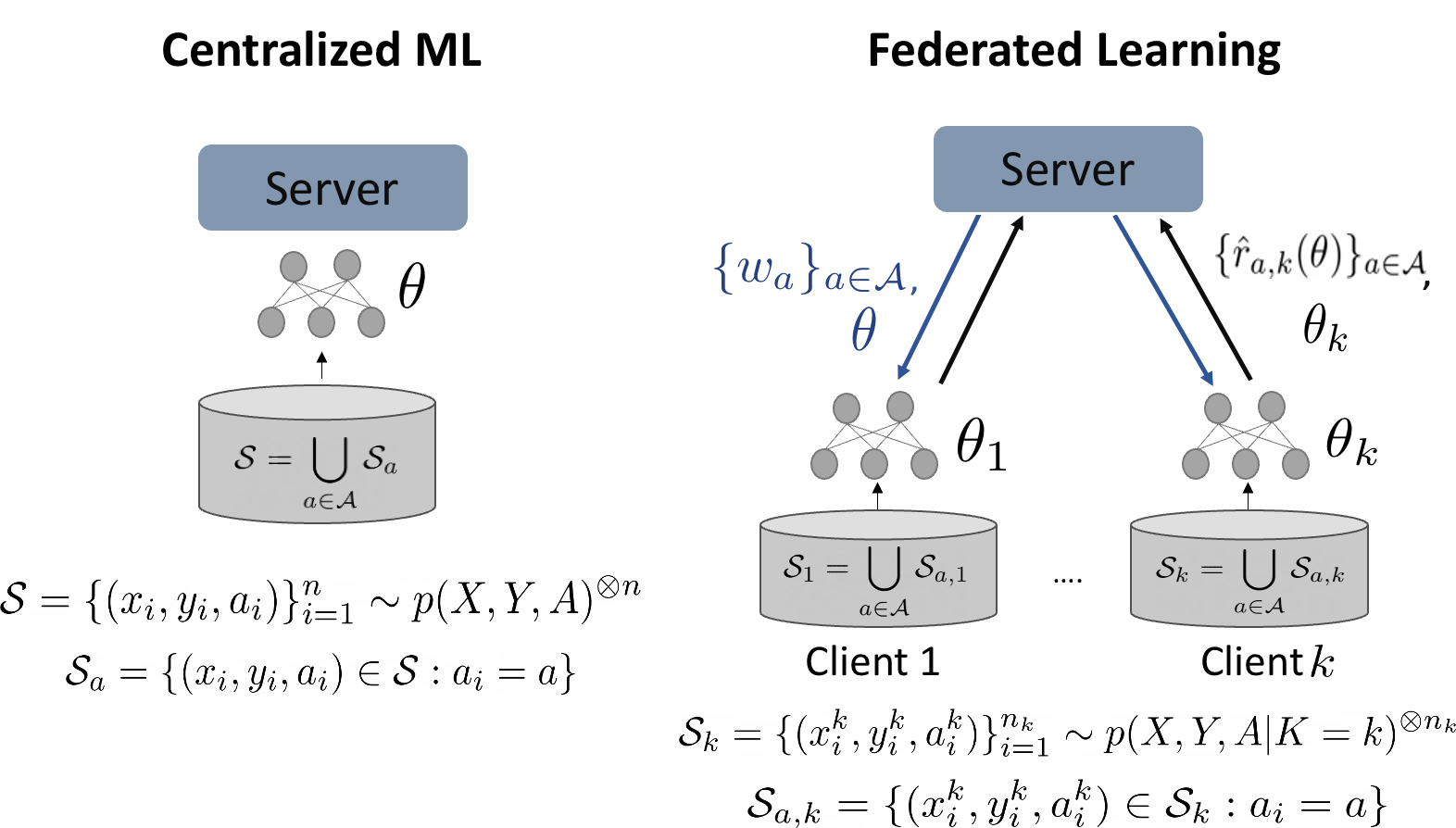Federated learning is an increasingly popular paradigm that enables a large number of entities to collaboratively learn better models. In this work, we study minimax group fairness in federated learning scenarios where different participating entities may only have access to a subset of the population groups during the training phase. We formally analyze how our proposed group fairness objective differs from existing federated learning fairness criteria that impose similar performance across participants instead of demographic groups. We provide an optimization algorithm -- FedMinMax -- for solving the proposed problem that provably enjoys the performance guarantees of centralized learning algorithms. We experimentally compare the proposed approach against other state-of-the-art methods in terms of group fairness in various federated learning setups, showing that our approach exhibits competitive or superior performance.
翻译:联邦学习是一种日益流行的模式,它使许多实体能够合作学习更好的模式。在这项工作中,我们研究了联邦学习情景中的小型群体公平性,不同参与实体在培训阶段只能接触一部分人口群体。我们正式分析了我们提议的联邦学习公平性目标与现有的联邦学习公平性标准有何不同,后者在参与者而不是人口群体中规定了类似的业绩。我们提供了一种优化算法 -- -- FedMinmax -- -- 以解决拟议的问题,因为后者可以明显地享有集中学习算法的绩效保障。我们在各种联邦学习组合中将拟议的方法与其他最先进的方法进行了实验性比较,表明我们的做法具有竞争性或优异性。









